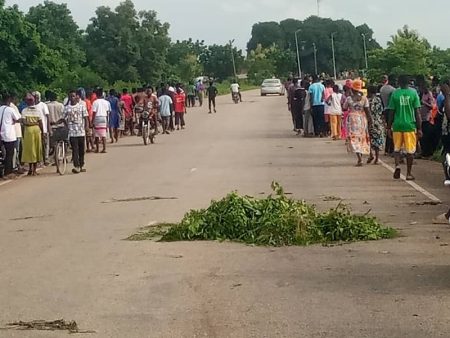The Minority caucus in Ghana’s Parliament has expressed concerns over President John Dramani Mahama’s directive to halt the sale, lease, and processing of all state and public lands. This directive, issued shortly after President Mahama’s return to office in January 2025, was intended to address concerns over potential misuse and “state capture” of public lands, an issue the then-opposition NDC had vocally criticized during the previous administration. However, the Minority now argues that this well-intentioned measure has unintended negative consequences, potentially stifling private sector growth and hindering revenue generation. Their primary concern is the disruption to legitimate business operations and individual investments that rely on access to public lands.
The Minority’s argument centers on the crucial role of land in economic activity. They contend that restricting access to public lands hampers businesses, particularly in sectors like real estate, agriculture, and infrastructure development. These sectors often require land for expansion, new projects, and operational bases. The ban effectively freezes these activities, preventing businesses from acquiring the necessary land to grow and contribute to the economy. This stagnation in the private sector, the Minority argues, translates to a loss of potential jobs, reduced economic output, and a general slowdown in economic growth. They emphasize the importance of a vibrant private sector as the “engine of growth” and warn that the ban undermines this essential driver of economic progress.
Furthermore, the Minority points to the significant revenue streams generated by the Lands Commission through various fees and charges associated with land transactions. These include stamp duties, consent fees, lease reparation fees, premium costs, and charges outlined in offer letters. With the ban in place, these revenue streams dry up, impacting the Lands Commission’s operational capacity and ultimately affecting the Consolidated Fund, which is the government’s primary source of funding for public services. The Minority stresses that this revenue loss could have a cascading effect, impacting the government’s ability to fund crucial social programs and infrastructure projects.
The Minority also raises concerns about the potential for legal challenges and disputes arising from the ban. Businesses and individuals who have already entered into legitimate lease agreements or initiated the process of acquiring land may find their investments jeopardized. This could lead to costly and time-consuming legal battles, further diverting resources away from productive economic activities. The resulting uncertainty and disruption in the land market create an unfavorable investment climate, discouraging both domestic and foreign investors.
The Minority further emphasizes the need for a balanced approach that addresses the concerns of land mismanagement without stifling private sector growth. They propose that instead of a blanket ban, the government should focus on strengthening regulatory frameworks, enhancing transparency in land transactions, and improving oversight of the Lands Commission. This would allow for responsible development while safeguarding public lands from misuse. They also highlight the importance of efficient land administration processes to facilitate legitimate land acquisition for businesses and individuals, fostering economic growth and revenue generation.
In conclusion, the Minority’s position is that while the President’s intention to protect public lands is commendable, the current implementation through a blanket ban is counterproductive. They advocate for a more nuanced approach: lifting the ban and focusing on strengthening regulatory mechanisms to ensure transparency and accountability in land management. This would allow the private sector to thrive, generate revenue for the state, and contribute to overall economic development while simultaneously safeguarding public lands for the benefit of all Ghanaians. They urge the President to reconsider the ban and engage in a dialogue with stakeholders to find a more sustainable solution that balances the need for land protection with the imperative for economic growth.














